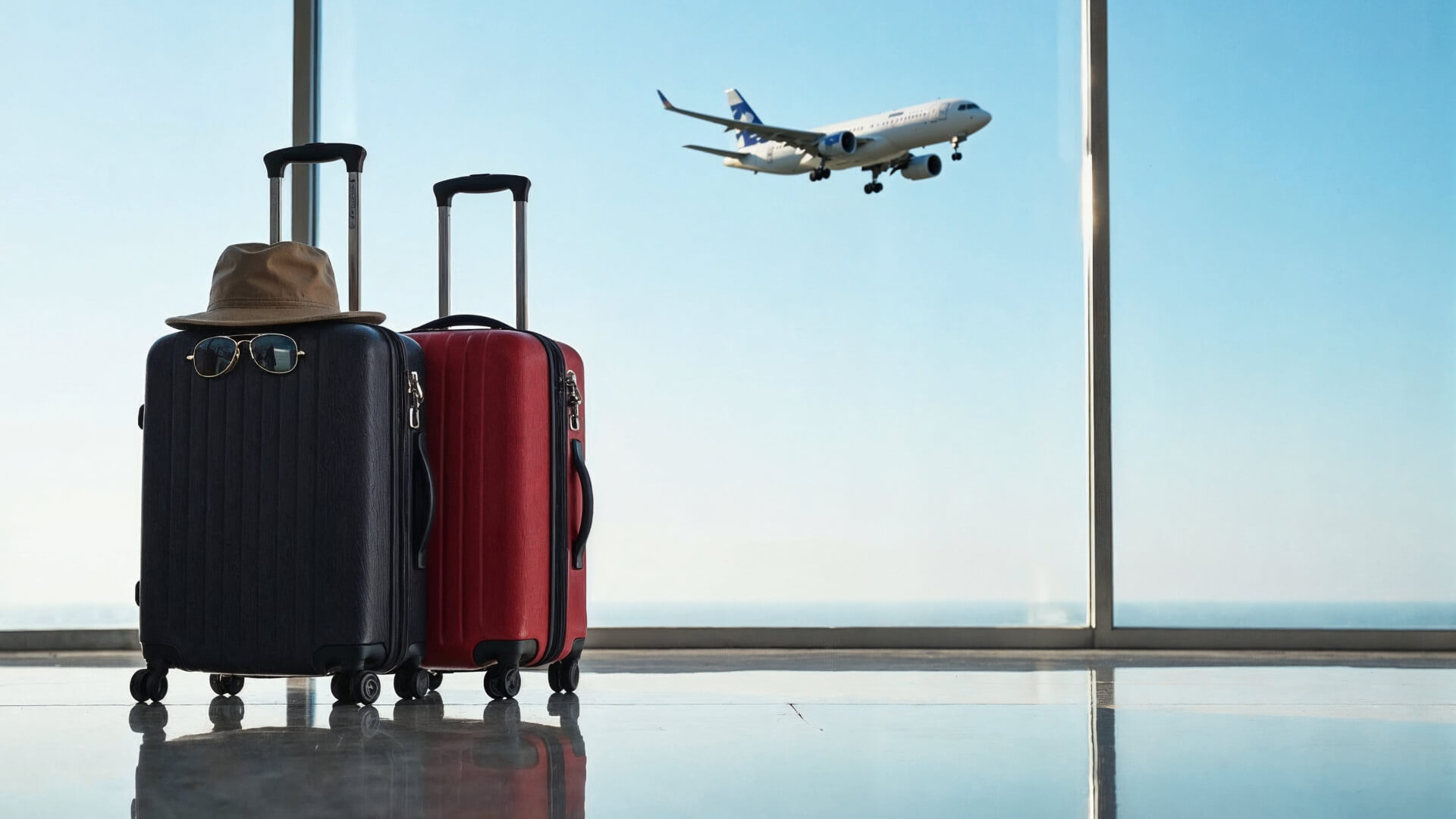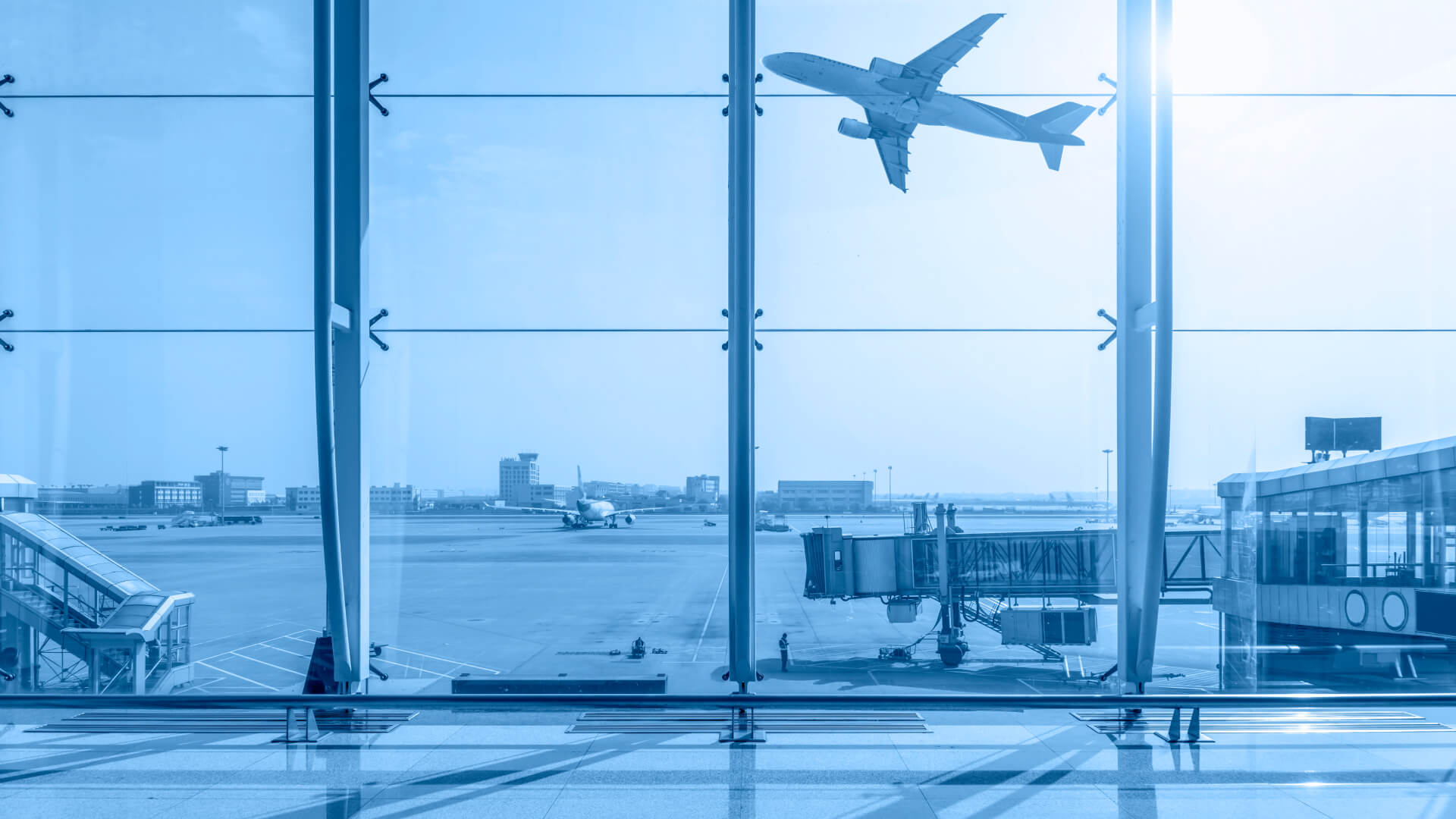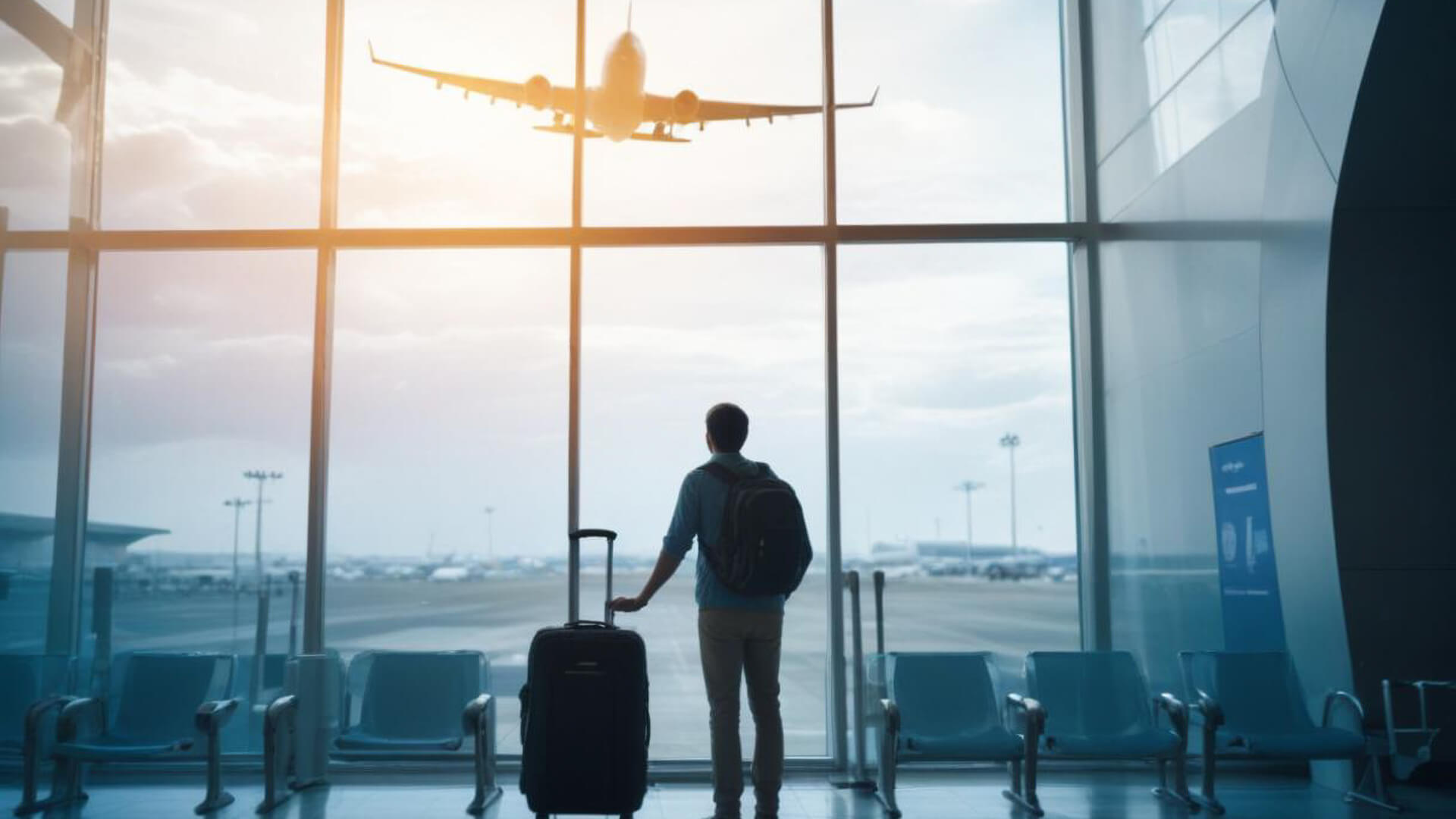At Simply Contact, we specialize in creating personalized customer support solutions that drive business growth and customer satisfaction. Let us help you elevate your customer experience and stand out from the competition.

According to the research, 86% of passengers state that experience impacts their loyalty to airlines. No wonder customer satisfaction is one of the most influential factors for business success: it can attract more clients or push them to a competitor. CX creation goes far beyond compliance with customer service standards. It builds a connection with travelers and enhances their trust in a company.
Airline customer experience is more than time on a plane; it's the entire journey from booking to the end of the trip. Simply Contact invites you to explore the CX role in the airline industry. We will review the key challenges airlines face and provide recommendations to help you elevate CX for travelers. Here, you can discover how modern technologies can transform airline operations and get hints about what to expect from the future.
Key challenges of customer experience in airlines

One of the most widespread issues in commercial aviation is the disproportionate focus on business and first-class travelers. These passengers receive more personalized service and clear priority, while the needs of economy-class customers are often overlooked. This imbalance is even more pronounced in low-cost carriers, where personalization is rarely an option and standardization drives every aspect of the experience.
However, deprioritizing economy passengers may be a strategic mistake. While first-class tickets generate short-term revenue spikes, economy travelers often hold greater lifetime value through repeat business. Surprisingly, data published in The Michigan Journal of Economics reveals that first class is the least profitable cabin. When comparing ticket prices, floor space allocation, and revenue per square foot across cabins, business and premium economy classes consistently outperform first class in profitability.
Another common challenge is the fragmented customer experience. Naturally, each department cares about its part of the work, but strict division can cause disjointedness. While one department controls booking and ticketing, the other creates the flight atmosphere. This natural state can cause inconsistent experiences on the trip.
Customer service in airlines can connect all fragments, making the journey smooth and consistent. Third-party assistance (like outsourcing travel and hospitality call centers) and special applications for airlines can help collect all vital information in one place and give passengers more control over the situation.
How to improve the airline customer experience

Airlines with the best customer service always look for ways to improve travelers' CX, as it is not a one-time operation but a constant process. As an experienced outsourcing customer service provider, Simply Contact has developed five principles to elevate CX in the airline industry.
1. Seamless journey as a base for the airline customer experience
If you want to go beyond the old-fashioned, fragmented experience, your best chance is to create a seamless customer journey from booking to arrival. The fewer departments they will have to contact separately, the smoother their trip will be. For example, integrated platforms for booking tickets and ground transportation may significantly enhance the impression and convenience.
The airline can offer customers pre-travel engagement and support. If passengers have a flight in a few days, timely reminders about check-ins, meal choices, or route changes will keep them informed and show they’ve been valued.
Offering hyper-personalization from the first interaction can make the journey unforgettable. Modern mobile apps, for example, are focused on anticipating needs and can send tailored notifications based on customers' previous interactions. By analyzing travelers' interests and preferences, airline companies can tailor their in-flight entertainment and loyalty programs to match customer needs.
2. Loyalty beyond frequent flyer programs
Traditional frequent flyer programs involve customers who fly often, exchanging miles for spending. Passengers from business classes usually get such offers, but this approach often ignores long-term loyalty to the brand.
Paying attention to both long-term and short-term value will allow you to expand loyalty rewards, winning the hearts of more passengers. You can extend the loyalty programs by offering rewards like hotel stays, exclusive events, or dining.
Creating meaningful relationships with customers is equally important as reward programs. For instance, you can move from mass marketing to emotionally intelligent communication with high personalization. Travelers are more likely to stay loyal when treated like individuals, not numbers from a database.
Airlines collect a lot of personal data, but often, a huge part of it remains unused. This data can tailor passengers' experiences by creating personalized loyalty initiatives. For example, artificial intelligence and machine learning can analyze customers' interactions and generate offers based on their needs.
3. Unified airline customer experience
As we mentioned before, a fragmented customer experience can be a pain for travelers because of the independent work of all departments. Collaboration and contact between different teams empowered with a shared CRM system will give all involved parties access to the customer profile. Accessible information will enable better customer service and a greater chance to help passengers productively with their issues.
Collaboration with airports and service partners will help find and fix weak service points. Sharing the information and insights will enable simpler addressing of common issues with a joint effort. For example, you can synchronize check-ins and baggage handling coordination to greatly enhance customers' satisfaction with the trip, reducing the amount of effort.
4. Hospitality-driven service mindset
We recommend looking at your airline as a hospitality company that cares not only about safety and operational stability but also has a great focus on CX. When service providers are not merely concerned with logistics functions but also put effort into passenger convenience and hospitality, they can achieve different service quality.
By entertaining and supporting travelers, you will make them feel welcome. As a result, your airline company will be more than just transport. It will be perceived as the creator of a positive experience and a reliable travel partner.
Many procedures are automated in modern airline services, as it significantly streamlines processes and makes them simpler for both companies and passengers. However, the challenge is to make your apps, chats, and self-service kiosks feel personal and human-like rather than cold and robotic. For instance, AI-powered chatbots can recognize tone and react to requests accordingly. Also, you can add more personalization with personal greetings in apps.
5. Empowering customers with choice and control
There is no satisfaction when a passenger feels helpless and loses control over the situation. When the case is critical, and the customer needs instant help, they will only get more frustrated without a chance to choose between self-service and a human operator.
Flexibility of choice is vital, and it will allow passengers to reach a support agent to handle the issue faster when the chatbot is not enough. The same goes for the preferred communication channel: several options will enable travelers to use the most convenient.
We recommend balancing a high-touch and frictionless experience to satisfy both those who want automated procedures and those who strive for a personal attitude. Automation can enhance service efficiency, handling routine tasks like check-ins and baggage tracking, while more complex cases may need human operator involvement.
Ready to create a seamless customer experience for your passengers? Team up with Simply Contact, the professional outsourcing service provider.
Get in touch
How innovations improve customer experience in the airline industry
BPO services for travel and tourism can be tailored and enhanced in several ways, and now we will review the five most efficient innovation approaches that will make a difference.
AI-driven insights for enhanced personalization
Artificial intelligence is well-known for its ability to handle many routine tasks and speed up airport procedures, but it can also raise the personalization level. AI can create specific passenger-oriented offers by analyzing user preferences and checking interactions.
With an AI-powered approach, travelers can get recommendations and suggestions based on their interests and travel history. Airlines utilize artificial intelligence to simplify traveling and make it more enjoyable by tailoring communication. For instance, AI can provide round-the-clock help with booking and inform travelers about flight changes like an always-available personal assistant.
Omnichannel communication for seamless interactions
When passengers are already frustrated, the need to repeat themselves after a request transfer may seriously raise their stress and anger levels. No one wants to get stuck trying to explain themselves repeatedly, and omnichannel communication can fix this issue.
If you choose this option, your customers can seek assistance across available channels, and operators will get all the context attached to the transferred query. The same goes for the transfer from chatbot to human operator.
As a result, staff will have a full interaction history and a complete description of the problem and can resolve the issues much faster.
Loyalty programs reimagined through predictive analytics
Predictive analytics enables accurate forecasts of how a traveler will act in the future by analyzing customer data. It helps to make loyalty programs more responsive and dynamic. For instance, based on analytics data, the company can make a perfect offer at the perfect time, enhancing the conversion. With such an approach, airlines can prioritize high-potential customers, not only high-spending ones, motivating them to use the service more.
Optimized customer flows for increased efficiency
Airlines can improve passengers' experience by optimizing main flows. For instance, with the help of accurate analysis, a company may find out what pain points spoil the journey and how to fix them. Knowing the friction zones and aligning the resources accordingly, service providers may reduce the number of queues. Passengers can get smart notifications that inform them about optimal check-in times and provide updates in case of gate changes.
Biometric identification will also automate boarding and speed up ID verification, reducing the load on human agents. Visitors can have a calmer journey and reduce stress via real-time baggage tracking.
With optimized airport flows, passengers wait less and demonstrate higher satisfaction. Predictive analytics allow companies to anticipate increased passenger movement and plan staffing more efficiently.
Automation for proactive service recovery
Proactive service recovery means the airline company fixes the problem before passengers complain. When the system detects issues, it can inform human agents and passengers to reduce stress and frustration. Travelers can receive automated compensation, rebooking offers, and vouchers depending on the company's choice.
The future of airline CX: A competitive differentiator

Witnessing how airline brands are improving customer experience in flight, we believe companies will invest more in digital transformation in the future. With cutting-edge technologies, including artificial intelligence, airlines can create superior customer journeys, tailoring experiences to match passengers' needs and expectations.
The airline companies will know their passengers better and will be able to improve the onboard entertainment and tailor loyalty programs to motivate promising customers.
Biometrics will transform traditional boarding, speeding it up and making security clearance easier and more reliable. The raised passenger control over the situation via airline applications will increase their confidence and trust in the company, reducing anxiety before the flight.
With a high priority on seamless, insight-led experiences, airline companies will raise personalization, interacting with passengers more like individuals than as masses or lists of names in the database.
Conclusions
Excellent customer experience is the goal of modern airline companies, as it can drive their popularity to the top, raise loyalty, and dramatically improve conversion. With a seamless CX approach, airlines can exclude the problem of fragmented experience and create a positive and welcoming environment for travelers focused on hospitality. A trained team and powerful technology stack that includes AI, automation solutions, and omnichannel support will enable customer-oriented and highly personalized communication.
Get fast answers to any remaining questions
Thank you.
Your request has been sent successfully.
Your request has been sent successfully.






